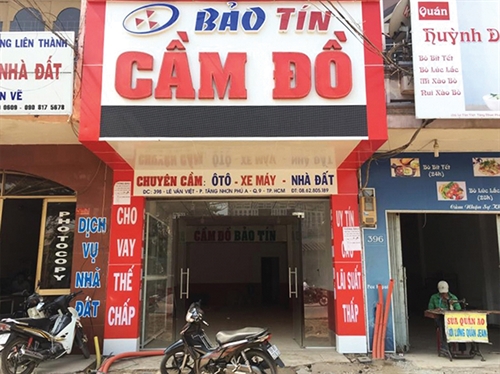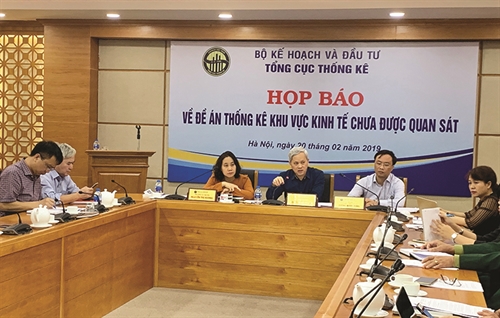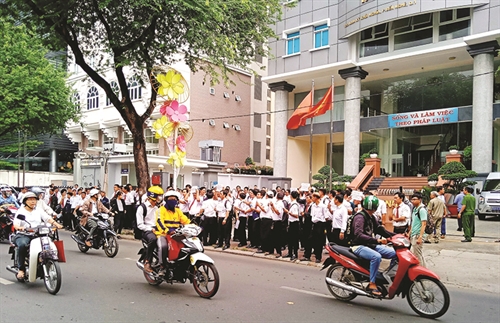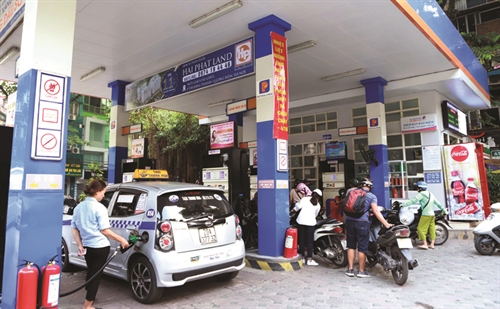The Vietnam Chamber of Commerce and Industry (VCCI) has recently submitted a document to the Ministry of Planning and Investment, proposing the removal of the condominium management service from the list of conditional business investment lines in the amended Investment Law.
The proposal, if approved, will greatly affect the country’s housing market. Together with the booming of the condominium market, the condominium management service has changed a lot over the past few years. According to statistics released on the Ministry of Construction’s portal, by March 2018, there are 211 businesses qualified for providing condominium operation and management services, of which 141 are based in Hanoi, 57 in Ho Chi Minh City, and the remainder in other localities, including Ba Ria-Vung Tau, Dong Nai, Da Nang, Khanh Hoa, Quang Ngai, Binh Dinh, and Quang Nam.
 |
| New Horizon City condominium at 87 Linh Nam street, Hoang Mai district, Hanoi__Photo: Dinh Thuan/VNA |
Under the current Investment Law, the condominium operation service is listed among 243 sectors and trades subject to conditional business. Investors that invest and do business in these sectors and trades must meet the requirements of national security, social order and safety, ethics and community well-being. Particularly for condominium management service providers, according to the 2014 Housing Law and Ministry of Construction Circular 02 of 2016 on management and use of condominiums, they must be organizations or enterprises established and operating under the Law on Enterprises or the Law on Cooperatives with the function of condominium management and operation or real estate management. These entities must meet other conditions on professional capacity and organization and personnel, among others.
According to real estate experts, the imposition of legal requirements on businesses engaged in operation and management of buildings in general and condominiums in particular has helped create a foundation for these businesses to operate in a more professional manner.
Explaining the reason why conditions on condominium management and operation service providers are necessary, Tran Minh Ai, Real Estate Management Director of Savills Vietnam headquartered in Ho Chi Minh City, told the Viet Nam News daily that condominium management is listed as a conditional business line because it is closely related to the safety of people in a residential area. “The conditions are technical barriers used to control the quality and ensure the capacity of service providers,” she said.
The VCCI’s proposal to exclude the condominium management and operation service from the list of conditional business investment sectors and trades can be understood as the removal of technical barriers to enterprises, helping them easily obtain business registration certificates without having to meet special conditions as at present. “Enterprises should be happy with easier procedures to enter the field,” Ai commented, adding that the condominium operation management industry will be open to more businesses while projects will have more options for operation when seeking management units. Hence, the industry will become more competitive.
Analyzing the VCCI’s proposal from the legal angle, lawyer Truong Thanh Duc, Chairman of Basico law firm, said such an idea is “understandable” as the Investment Law, the Enterprise Law and other business-related laws should be amended to maximize the rights to conduct business of citizens and minimize technical barriers such as business conditions.
“In fact, the industry of condominium management is not special in nature. Regulations applicable to the industry should be decided according to the market’s requirements,” Duc told the Viet Nam News daily.
“As most disputes arising in condominiums involve the conflict of interest between residents and investors, the law needs to take care of that matter with clear regulations for investors to follow, instead of condominium managers. Managing agencies are only intermediaries to take care of related issues. They cannot make decision on behalf of investors if there is a problem between them and the residents,” Duc said.
But there are two sides to every coin.
The removal of “technical barriers” may make it harder to control the quality and capacity of condominium management and operation units. Since real estate management is a particular service that involves social order and safety as well as the health and life of many people, enterprises providing such service must meet higher professional requirements before making business registration. The removal of these requirements will pave the way for incapable businesses that are willing to provide low-cost but low-quality services. This may lead to serious consequences to the life and safety of residents. “If these requirements are removed, the market could easily become chaotic,” Ai warned.
Tran Ngoc Hung, Chairman of the Vietnam Federation of Civil Engineering Associations, shared Ai’s concerns. “Every job requires separate skills. Condominium management is completely different from other management sectors as it involves many activities, ranging from little things like garbage and sanitation to important issues such as building repair and maintenance”, Hung said, adding that the operation of housing projects and the residents’ quality of life will be adversely affected if such activities are in the hands of incapable units.
Recommendations
Despite agreeing that the VCCI’s proposal will facilitate businesses’ access to the condominium management industry, experts still support the inclusion of the condominium operation and management service in the list of conditional business investment lines. The question here is how to design suitable conditions so as to help better control the quality of the service as well as the capacity of service providers.
Under the current law, employees of condominium operation and management service providers must possess certificates of completion of training or further training courses on condominium management and operation. However, the contents of the training programs designed by the Ministry of Construction are seemingly unpractical and unsuitable to the real estate market. As a result, such certificates are often seen as a “ticket” for their holders to enter the estate management industry rather than the “proof” of their professional capacity.
In addition, for the time being, all condominium management and operation training programs are provided in Vietnamese. Meanwhile, heads of condominium management and operation businesses are also required to possess certificates of completion of training or further training in condominium management and operation. This is a barrier to companies whose leaders are foreigners.-









